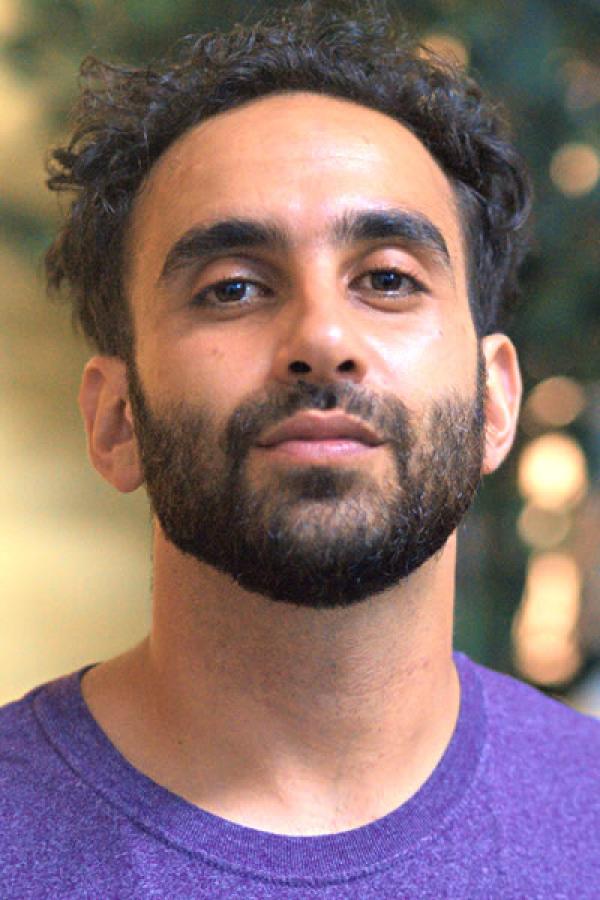Antony Fangary

Photo by Kevin Dublin
Bio
Antony Fangary is a poet, artist, and fiction writer based in San Francisco, California. His paintings have been featured in galleries and art shows around the Bay Area and Los Angeles. His writing has recently appeared in New American Writing, the Sycamore Review, West Branch, and elsewhere. His chapbook, HARAM, was published by Etched Press in 2019. Fangary was a finalist for the 2022 National Poetry Series, honorable mention of the Ina Coolbrith Poetry Prize, finalist for the 2019 Wabash Poetry Prize, and runner-up for the 2020 Test Site Poetry Series Book Prize. His work has received support from the San Francisco Arts Commission, Yerba Buena Center for the Arts, and the Center for Cultural Innovation. Fangary holds a BA from University of California Davis, and an MFA from San Francisco State University.
Receiving this award from the National Endowment for the Arts feels like a continuation of my great-uncle's endeavors to create. As I write my artistic statement, I look at one of his paintings I have hung in my San Francisco apartment: a snow-covered cabin near a stream. When he painted this, he was still living in Upper Egypt, and the country was still under British occupation. The snow is fluffy, like whipped cream, and almost floats over the cabin. He had never seen snow but painted places and things he wanted to see. He won an award for his paintings from the last King of Egypt, and that award substantially changed his life; he felt validated as an artist and was eventually able to see the places he painted.
I feel an echo between my great-uncle's award from King Farouk and my award from the NEA. I think about how much our lives differ, yet how much he and I have in common. I have never been to Upper Egypt, but it is the focus of my work. And just like my great-uncle, an artistic award will allow me to see the places I make art about.
The NEA will also allow me to focus on my first full-length book of poetry and my first novel, drowning out the anxious voice repeating, “does any of this matter” that so many artists grapple with. My central focus in both books is the Coptic experience, its relationship with colonialism, and how it materializes within historically persecuted people's psychology. In essence, I'm writing my great-uncle's life. The NEA will allow me to sit with my art, test the consistency, and play with as much whipped snow as I can.

